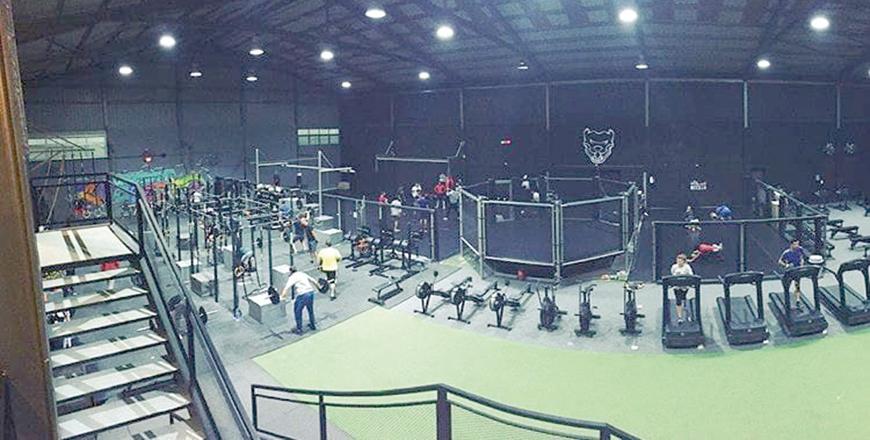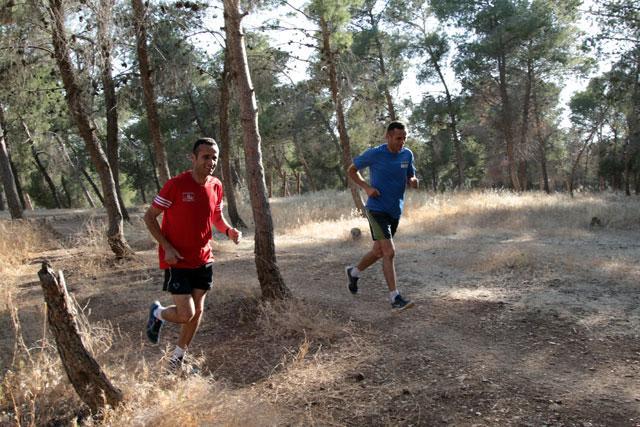You are here
Exercising during Ramadan can help for ‘notable weight loss’
By Maram Al Kayed - May 28,2018 - Last updated at May 28,2018

The participation in sports classes before Iftar is on the rise, according to local gyms representatives (Photo courtesy of CrossFit Crescent)
AMMAN — Despite common beliefs that the lack of exercise during Ramadan will help “save energy” during the fasting hours, health experts have pointed out the benefits of working out during the holy month.
With almost 17 hours of fasting a day during Ramadan, some say they feel eager to save their energy to get through the day, mostly by avoiding any additional physical activity.
“I try to preserve all my energy so I can get my usual work done and function as normally as a person without food and water in this heat could,” Raya Haddad, an employee at the Ministry of Education, told The Jordan Times on Monday.
Her colleague Sawsan agreed: “It is near impossible for us workers to exercise during Ramadan. We barely have the energy to walk back to our cars after a long day of work.”
However, nutritionists expressed a different opinion when it comes to the notion of “saving energy” during fasting hours.
“A common misconception is that no food means no energy. Realistically, it depends on the person’s storage of glucose, which in turn depends on the types of food they eat during the non-fasting hours. People who seize the opportunity to consume foods that are rich in protein usually maintain the same level of energy as they would during a regular day, thus making exercise possible,” stressed nutritionist Amani Alremawi.
“The reason many people feel worn out during the day is because they indulge themselves with sweets and sugary food during hours of iftar, which is of no real value in terms of energy during the later fasting hours,” she told The Jordan Times over the phone.
In fact, several trainers working at some of Amman’s gyms said physical activity is “vital” to keeping one’s spirits up during Ramadan, which is why many of them have group exercise classes especially set up for the holy month.
“People are more encouraged to work out if they do it in groups,” a fitness centre’s representative said, adding that “classes are usually set for after iftar, but other gyms have them before it as well”.
Other than group support and a mind diversion during fasting time, exercise has even more important health effects.
Spokesperson for local gym CrossFitCrescent Nawal Abbassi said that the two classes they have before iftar are “packed”, mostly because those who take them have had “notable weight loss”, prompting even more people to sign up for these classes.
“People come in before iftar because there is a high level of awareness regarding fat-burning in the last hours before breaking fast. People have been losing weight, and others are getting envious. I see people who aren’t even Muslim fast and sign up for these classes because they see their friends’ progress,” Abbassi explained.
As beneficial as exercise can prove to be even during fasting, the practicality of attending classes so close to breaking fast has nonetheless been “problematic”.
Housewives, for instance, say they are reluctant to join classes close to iftar time, as they are usually spending that time preparing the meal. “It takes me two hours to get the table ready, so I froze my membership until after Ramadan. That is more pragmatic for me and my family,” said Randa, a mother of three.
Osama Dweiri, a 26-year-old bank employee, who has been struggling with his weight for years, said he absolutely “cannot make it” to the gym during Ramadan, regardless of how much it could help his weight loss plan, citing long working hours, traffic to and from the gym, and religious commitments.
Related Articles
Hydration during sohour and iftar is key to survive the 16 hours of fasting in-between, according to nutrition and fitness experts.
AMMAN — Health and fitness experts are encouraging people to continue exercising during Ramadan and to plan their workouts according to thei
AMMAN — To maximise the benefits of fasting during Ramadan, experts are urging people to avoid excess and follow a healthy, balanced diet.&n

Opinion
Apr 09, 2025
Apr 08, 2025
- Popular
- Rated
- Commented
Apr 08, 2025
Apr 09, 2025
Newsletter
Get top stories and blog posts emailed to you each day.

















